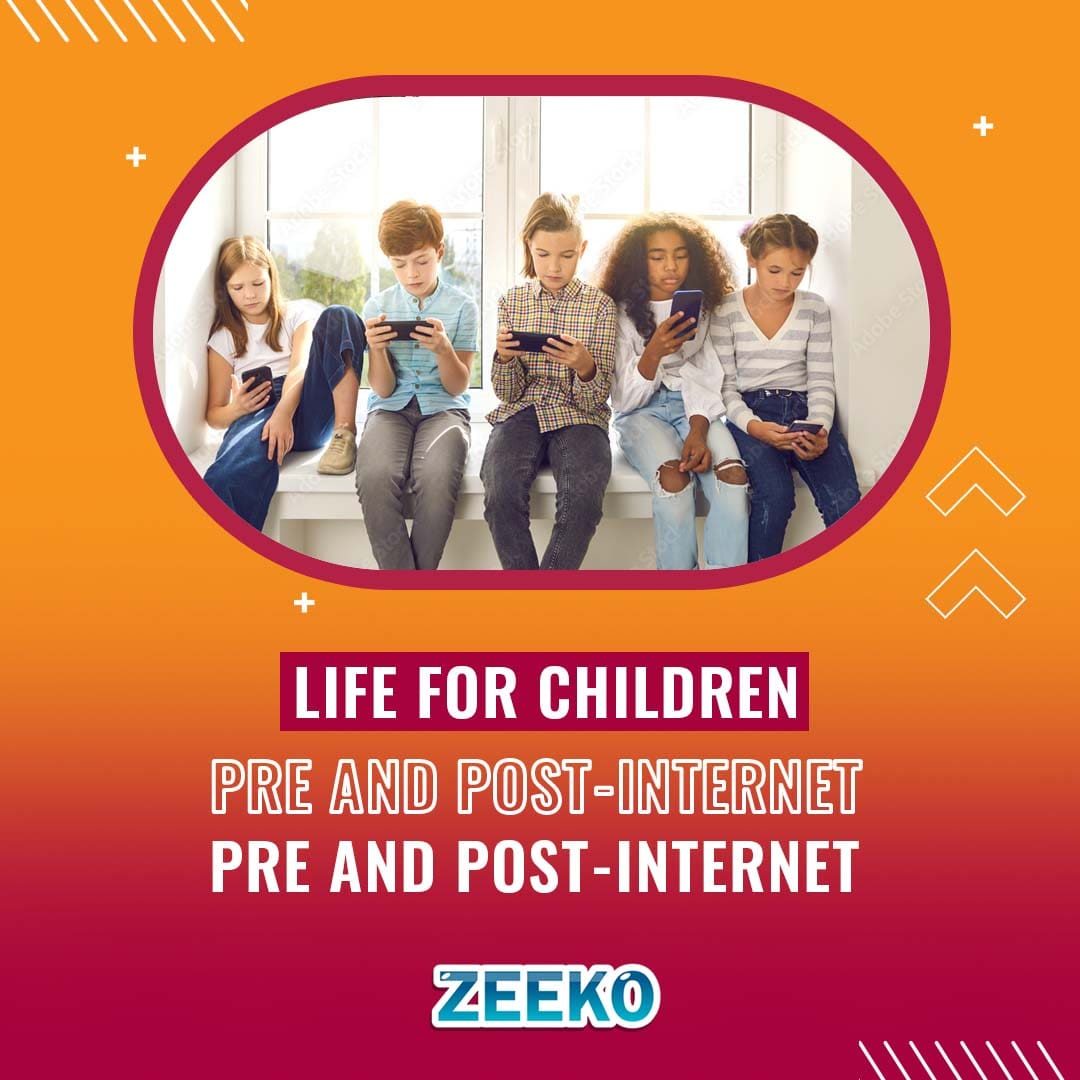We know that technological advancement, especially the internet, has brought many issues to our children’s lives or at least enhanced underlying problems. Regarding education and learning, internet access has changed how students source information. Later in this blog, we will compare the main differences between pre-and post-internet education.
The issues
We are conscious of not continuously repeating ourselves about the issues and problems that the internet presents to our children and students, so we have listed the main concerns briefly below.
- Cyberbullying - over accessibility to anyone in the world has created a breathing ground for keyboard warriors enforcing a belief that typed words hold no mass and ignite no feelings in others. This is not the case.
- Inappropriate Content - similar to online words having no meaning, children now believe that online actions have no meaning. With the introduction of disappearing messages and forming bonds with online strangers, they can access, find and engage in inappropriate content easily.
- Addiction to Screen Time - we are addicted to screens. The time we spend looking at screens causes us and our children to spend less time outside or in human face-to-face interactions.
- Lack of digital literacy - children lack the necessary skills to navigate the complexities of the online world safely and responsibly. They may not understand concepts such as privacy settings, online etiquette, or critical evaluation of online content, leaving them vulnerable to various risks and dangers.

School life for students pre-internet
Before the internet and its wealth of knowledge arrived in our homes, children relied on traditional sources like books, encyclopedias, and libraries for information. You probably remember this yourself. Your research and learning were often time-consuming and required physical resources. It needed much more time and more trawling through large books in the library and consolidating information from many different sources to form your answer. Educational resources were mostly confined to the classroom, school library, or community resources. Interactive and multimedia learning tools were limited.
Again, communication was primarily face-to-face or over the phone. Instilling those vital communication skills that help build character and prepare you for life situations.
School life for students post-internet
Educational resources are abundant online. Children can use interactive learning platforms, watch educational videos, and access virtual simulations to enhance their learning experiences.
Research and homework have become more efficient with online resources. The internet has provided platforms for children to express their creativity through blogs, videos, art-sharing websites, and other online outlets.
The amount of information online for students is overwhelming. Students may struggle to discern credible information from misinformation online. They may be exposed to false or misleading content, which can shape their beliefs, attitudes, and behaviours in harmful ways.
Combatting with Internet Safety Seminars
Internet safety seminars can be an effective tool in combating internet safety issues among children. These seminars can cover various topics and strategies to help children navigate the online world safely. Here are some critical issues that an internet safety seminar will cover.
Digital footprint awareness: Teaching children about the concept of a digital footprint and the importance of managing their online reputation can help them make more informed decisions about what they share online. This includes discussions about the permanence of online content and the potential consequences of posting inappropriate or harmful material.
Privacy protection: Seminars can cover strategies for protecting personal information online, such as setting privacy settings on social media accounts, using strong and unique passwords, and being cautious about sharing sensitive information with strangers online.
Safe online communication: Guiding safe and respectful online communication is essential in preventing cyberbullying and online harassment. Seminars can discuss appropriate behaviour in online interactions, including the importance of being kind and respectful and knowing when to seek help from a trusted adult if they experience or witness cyberbullying.
Healthy screen time habits: Promoting healthy screen time habits and digital wellness is essential for children's well-being. Seminars can provide tips for balancing online and offline activities, setting limits on screen time, and recognising signs of digital addiction.

Internet safety seminars
Zeeko Education provides virtual and on-site Internet safety training to suit every school’s needs. Some of our packages also include parent seminars to ensure you are up to date with the most relevant information for your child, their class, and their age group. Our bookings are open. If you are a teacher looking to book a seminar, simply fill out the form here. If you are a parent and would like your child to participate in an Internet Safety Seminar, forward this to your child’s teacher.

